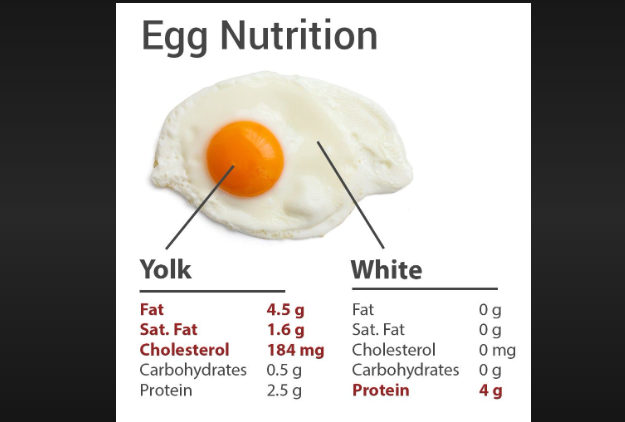The Perfect Measure: How Many Grams Does 1 Egg Weigh?
Eggs are a versatile and essential ingredient in countless recipes, from baking to cooking. When following a recipe or trying to manage dietary intake, knowing the weight of common ingredients is crucial. One common query that often arises is: "How many grams does 1 egg weigh?" In this informative guide, we'll explore the weight of a single egg, its nutritional value, and its role in culinary creations.

Egg size quick guide
I. The Significance of Eggs in Cooking
Before we delve into the weight of a single egg, let's briefly discuss the importance of eggs in cooking and baking.
Culinary Versatility: Eggs serve various functions in recipes, including binding, leavening, adding moisture, and enhancing flavor.
Nutrient-Rich: Eggs are a rich source of protein, vitamins, and minerals, making them a valuable addition to a balanced diet.
II. Understanding Egg Weights
The weight of an egg can vary depending on its size and whether it's a whole egg, egg white, or egg yolk.
Average Egg Weight: An average large egg, commonly used in recipes as a standard measure, weighs approximately 50 to 60 grams.
Egg Components: If you're interested in specific egg components:
- Egg White: On average, an egg white from a large egg weighs around 30 grams.
- Egg Yolk: The egg yolk from a large egg weighs roughly 18 to 20 grams.
III. Nutritional Value of Eggs
Understanding the nutritional value of eggs can provide insight into their role in a healthy diet.
Protein: Eggs are a high-quality source of protein, with a single large egg containing about 6 grams of protein.
Vitamins and Minerals: Eggs are rich in essential nutrients such as vitamin B12, vitamin D, choline, and selenium.
Dietary Cholesterol: While eggs contain dietary cholesterol, research suggests that dietary cholesterol has a limited impact on blood cholesterol levels for most people.
IV. Culinary Uses of Eggs
Eggs are a staple in various culinary creations, adding texture, flavor, and structure to dishes.
Baking: Eggs play a crucial role in baking by providing structure, moisture, and leavening properties.
Breakfast Favorites: Eggs are often prepared as omelets, scrambled eggs, or sunny-side-up eggs, offering a versatile and satisfying breakfast option.
Sauces and Binders: Eggs are used as a binding agent in dishes like meatballs and as a base for sauces like hollandaise.
V. Managing Egg Intake
For those monitoring their dietary intake, understanding the weight of a single egg can be helpful.
Portion Control: Knowing the weight of an egg can assist in portion control and accurately tracking nutritional intake.
Dietary Restrictions: Individuals with dietary restrictions or preferences can make informed choices based on egg content in recipes.

Egg nutrition
In response to the question "How many grams does 1 egg weigh?" the average weight of a large egg is approximately 50 to 60 grams. Eggs are not only a culinary staple but also a nutritional powerhouse, offering protein, vitamins, and minerals. Their versatility in cooking and baking allows them to contribute to a wide range of dishes, from breakfast classics to savory entrées. Whether you're a home cook, baker, or health-conscious individual, understanding the weight and nutritional value of eggs empowers you to make informed decisions and create delicious, balanced meals.